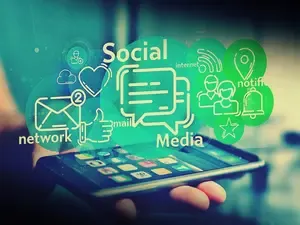Study Finds Both Active and Passive Social Media Use Can Lead to Loneliness

Synopsis
Key Takeaways
- Passive social media use can exacerbate loneliness.
- Active engagement in social media may also lead to feelings of isolation.
- A feedback loop exists between loneliness and social media use.
- The study highlights the need for in-person social interactions.
- Further research is necessary to explore these dynamics.
New Delhi, Feb 9 (NationPress) Both passive and active engagement with social media has been found to correlate with heightened feelings of loneliness over time, according to researchers.
The research team delved into the effects of social media use on loneliness and explored the hidden emotional costs associated with these platforms.
The revealing study conducted by Baylor University, published in the Personality and Social Psychology Bulletin, indicates that the platforms intended to foster connection contribute to an “epidemic of loneliness.”
While passive social media use — such as scrolling through feeds without interaction — is predictably linked to increased loneliness, even active engagement, which includes posting and interacting, also shows a connection to rising feelings of loneliness.
These findings imply that the quality of online interactions may not satisfy the social needs fulfilled by in-person communication.
“This study highlights the intricate relationship between social media and mental health,” stated lead researcher James A. Roberts.
Despite the unparalleled access to online communities that social media provides, it seems that extensive use — whether active or passive — does not mitigate feelings of loneliness and could potentially exacerbate them, he noted.
The research also identified a reciprocal relationship between loneliness and social media use.
“There appears to be a continuous feedback loop at play. Individuals who feel lonely may turn to social media for comfort, but this engagement may only serve to intensify their loneliness,” explained Roberts.
The results underscore an urgent need for further investigation into the impacts of digital interactions, emphasizing the critical importance of face-to-face connections for overall well-being.
This research contributes significantly to the dialogue regarding how digital behaviors affect mental health, providing insights that could inform future mental health strategies, policies, and guidelines for healthier social media practices.









